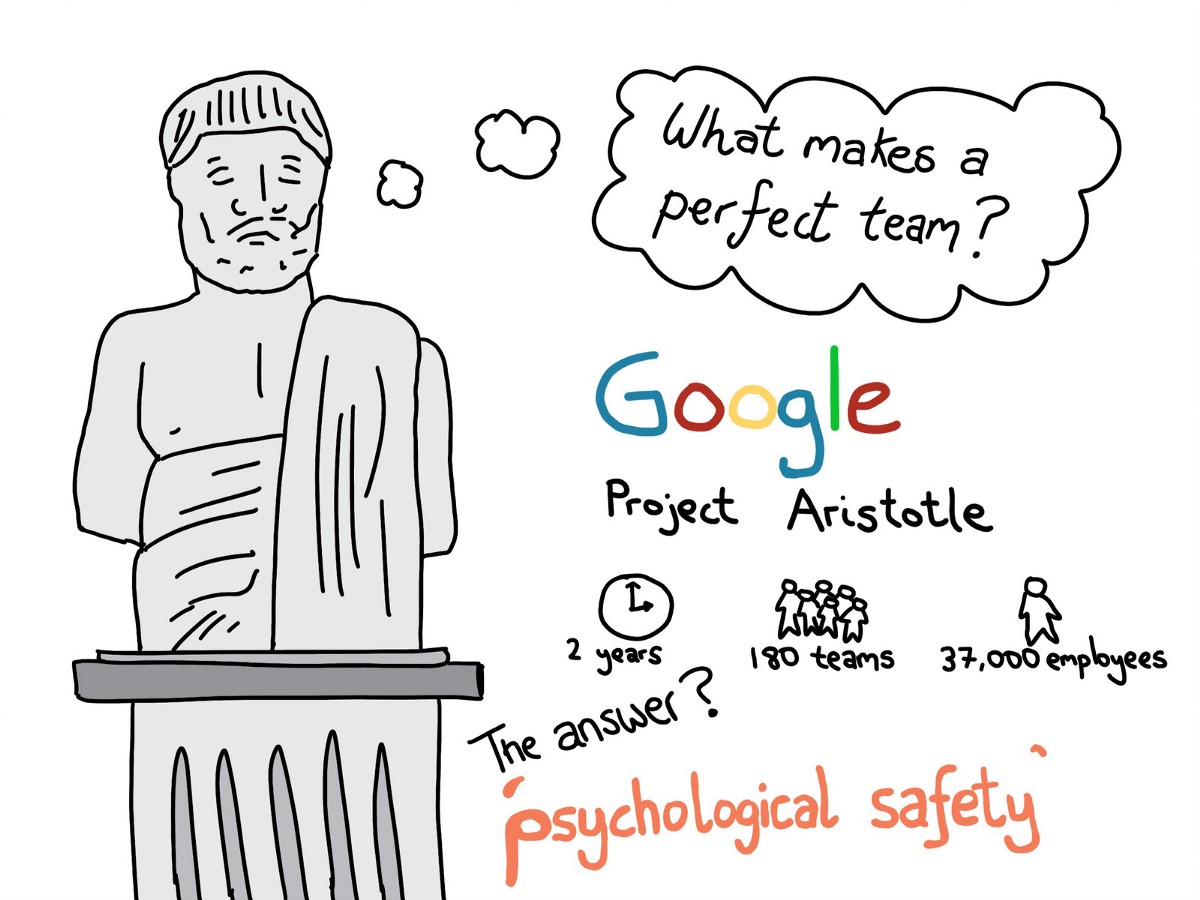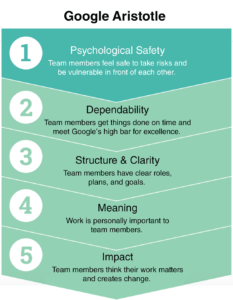What they say: We’re family. What they mean: The boss is the family.
Build
Stop me if this sounds familiar. You start a new job where they tell you, “We’re like family here. We’re all on the same team.” What they mean is, “The team has one goal: keeping the boss happy.”
Truth is, most company structures are designed to keep the team members working “up” where they find praise and reward. They do not work across. They do not work for the other members of their teams. They work to keep their bosses happy, even if it means stepping on a fellow “team” member.
So how do you form an effective team? Read on.
Revolutionize “Teamwork”
This week, my Vistage group had a remarkable meeting for two reasons.
First, we heard from the insightful Eric Coryell, who packed a week’s worth of thinking into a three-hour presentation. Eric contends that company leaders appreciate the existing structure because they have the illusion that it gives them control. But a true leader is comfortable losing some control to a team of workers that actually has some power. Eric’s book, “Revolutionary Team Work” is available on Amazon. You could see the wheels turning in the brains of my group members as they thought about how their teams work well or work inefficiently.
The second reason for the outstanding meeting was the courage and vulnerability of my group members. We start each meeting with a “check in.” Each member talks about their health, their business, significant events in their personal lives and then offers up an issue they’d like to share with the group and get some feedback. One member was just about done with his check-in, when his voice inflection changed and he said, “Actually, there is a family issue I’d like some help on.” And he went on to describe a difficult relationship question within his family. And the rest of the members shifted into what I call “SEAL Team Mode.” They supported. They questioned. They shared their own experiences. They offered advice. For the rest of the meeting, they were laughing and sharing and getting along like old friends. The meeting and the group went to a deeper, more vulnerable level.
Eric later talked to us about Google’s “Project Aristotle” and he might as well have been talking about our Vistage group when he described what Google discovered about what makes teams work well together. 
- Psychological safety. “Within psychology, researchers sometimes colloquially refer to traits like ‘‘conversational turn-taking’’ and ‘‘average social sensitivity’’ as aspects of what’s known as psychological safety — a group culture that the Harvard Business School professor Amy Edmondson defines as a ‘‘shared belief held by members of a team that the team is safe for interpersonal risk-taking.’’ Psychological safety is ‘‘a sense of confidence that the team will not embarrass, reject or punish someone for speaking up,’’ Edmondson wrote in a study published in 1999. ‘‘It describes a team climate characterized by interpersonal trust and mutual respect in which people are comfortable being themselves.’’
- A chance to talk: “First, on the good teams, members spoke in roughly the same proportion, a phenomenon the researchers referred to as ‘‘equality in distribution of conversational turn-taking.’’ On some teams, everyone spoke during each task; on others, leadership shifted among teammates from assignment to assignment. But in each case, by the end of the day, everyone had spoken roughly the same amount.
- Social sensitivity: The good teams all had high ‘‘average social sensitivity’’ — a fancy way of saying they were skilled at intuiting how others felt based on their tone of voice, their expressions and other nonverbal cues.
- What’s messy and sad: What Project Aristotle has taught people within Google is that no one wants to put on a ‘‘work face’’ when they get to the office. No one wants to leave part of their personality and inner life at home. But to be fully present at work, to feel ‘‘psychologically safe,’’ we must know that we can be free enough, sometimes, to share the things that scare us without fear of recriminations. We must be able to talk about what is messy or sad, to have hard conversations with colleagues who are driving us crazy. We can’t be focused just on efficiency. We want to know that work is more than just labor.
We often say that in our Vistage group, “You’ll be uncomfortable, but you’ll be safe.” It is in that uncomfortable zone where true growth occurs. I am so proud of my group for keeping each other safe while exploring some deeply personal issues.
Frequently Asked Questions
What is Business Coaching?
The best coaches help you build mental fitness – an acuity for running your business and your life. It is different from consulting. Consultants give you the answers. Coaches help you search within yourself to find those answers.
How Do I Know if Business Coaching Is Right for Me?
Do you ever find yourself saying, “It’s lonely at the top”? Then business coaching is right for you. As your coach, I am a clear-eyed colleague who tells you the truth about your decisions. Whether you’re making excuses or breaking through to a better place.
Do You Only Work With Established Companies?
No. I work with all kinds of companies. Start-ups. Established companies who are headed in a new direction. The only qualification I ask of you is, “Do you have a growth mindset?” If the answer is yes, let’s work together.



0 Comments